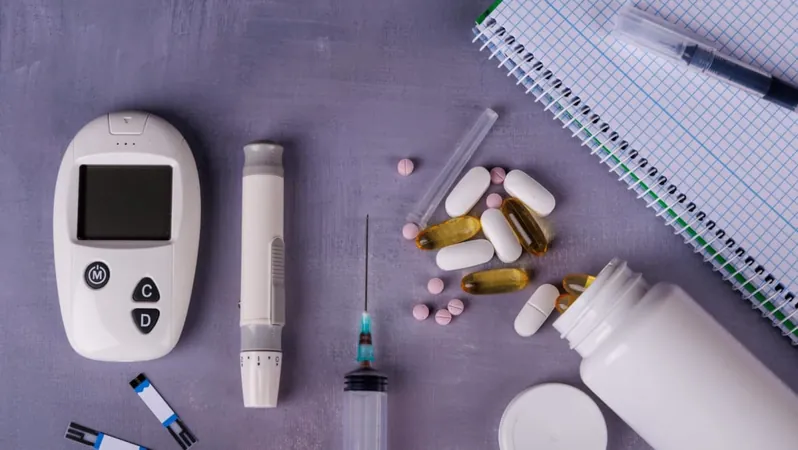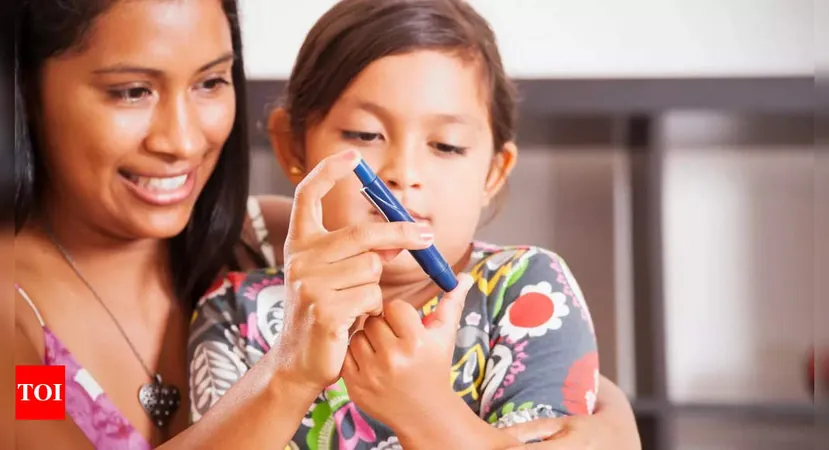
Are You Sure You're Managing Your Diabetes Effectively? New Survey Shows Many Aren't!
2024-11-12
Author: John Tan
Overview of Diabetes in Singapore
A staggering 400,000 Singaporeans are currently living with diabetes, and projections indicate that this number could swell to 1 million by 2050. This chronic condition is becoming more prevalent, which means you or someone you know may be affected.
Confidence in Management
For those managing diabetes, the routine includes monitoring diet, tracking blood glucose levels, maintaining an active lifestyle, and adhering to medication regimens. But how confident are you in your diabetes management? A recent YouGov survey commissioned by Abbott reveals that many diabetics may be overestimating their control over this complex condition.
The survey, which concluded in September, involved 352 adult Singaporeans diagnosed with either Type 1 or Type 2 diabetes (including roughly 14% who were unsure of their diabetes type). A surprising 65% of respondents felt they were managing their diabetes effectively. However, the reality paints a different picture: over 60% of these individuals had glycosylated hemoglobin (HbA1c) levels exceeding 7%, indicating a higher risk for severe complications such as heart disease, strokes, kidney failures, nerve damage, and vision impairment.
Lack of Monitoring and Awareness
The survey highlighted that 51% of participants did not monitor their glucose levels at home, citing inconvenience, while 46% deemed it unnecessary. Dr. Ester Yeoh, a senior consultant endocrinologist at Aspen Diabetes & Endocrine Clinic, warns that lack of monitoring means these individuals lack awareness of how their dietary choices may impact their glucose levels. What affects one person may not necessarily have the same effect on another.
Understanding Dietary Management
Interestingly, many respondents believed reducing sugar intake—like cutting desserts and sweet drinks—was the key to managing diabetes effectively. However, Dr. Lim Su Lin, chief dietitian at National University Hospital, emphasizes that successful management requires a comprehensive approach. “Effective diabetes management requires more than just reducing sugar intake," she states. "Portion control, along with a balanced diet rich in whole foods and low in processed items, can lead to significantly improved glycaemic profiles."
Adherence to Medication
Despite gaps in knowledge and practice, it's reassuring to note that a remarkable 97% of respondents were diligent about taking their prescribed medications regularly.
Diet: A Double-Edged Sword
A significant 90% of participants acknowledged that diet plays a crucial role in regulating blood glucose levels, with 74% saying they reduced their sweet and sugary beverages since their diagnosis. However, merely 40% understood the impact of various other foods on their blood sugar. Alarmingly, only 46% reported reducing carbohydrate intake and 43% decreased their consumption of processed foods. Furthermore, just 30% shifted towards higher protein consumption. There’s also a stark lack of awareness about portion control, with only 10% implementing this strategy following their diagnosis.
Should Exercise Take a Front Seat?
Almost 80% admitted to falling short of the recommended 150 minutes of moderate-intensity exercise per week, averaging only 95 minutes of physical activity. Notably, seniors over 60 were more physically active, with 30% achieving the 150-minute goal compared to just 17% of those under 60. This reveals a critical opportunity for health promotion among younger diabetics.
Who Do We Turn to For Guidance?
When it comes to seeking advice, a staggering 78% turn to healthcare professionals such as dietitians and nurses, rather than doctors. Interestingly, lifestyle influencers, fitness experts, and chefs were not as trusted, with only about 20% of respondents relying on them for diabetes-related information.
Conclusion
In conclusion, while many diabetics in Singapore feel they are effectively managing their health, the harsh reality suggests otherwise. Improved education regarding dietary choices, the importance of regular monitoring, and physical activity remains essential. As we move forward, increasing awareness of effective diabetes management strategies can help close the gap between perception and reality — because staying unaware could come at a serious price!




 Brasil (PT)
Brasil (PT)
 Canada (EN)
Canada (EN)
 Chile (ES)
Chile (ES)
 España (ES)
España (ES)
 France (FR)
France (FR)
 Hong Kong (EN)
Hong Kong (EN)
 Italia (IT)
Italia (IT)
 日本 (JA)
日本 (JA)
 Magyarország (HU)
Magyarország (HU)
 Norge (NO)
Norge (NO)
 Polska (PL)
Polska (PL)
 Schweiz (DE)
Schweiz (DE)
 Singapore (EN)
Singapore (EN)
 Sverige (SV)
Sverige (SV)
 Suomi (FI)
Suomi (FI)
 Türkiye (TR)
Türkiye (TR)